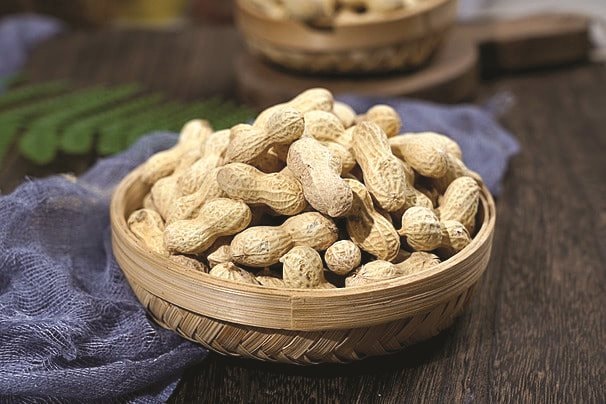The “longevity seed” with more protein than beef—good for the heart and reduces the risk of diabetes: widely available but rarely recognized for its benefits.
It offers excellent support in nourishing multiple organs in the body.

Peanuts: A Nutritious and Versatile Superfood
Peanuts are well-known as a versatile and delicious snack, whether consumed roasted or raw. Beyond their flavor, peanuts are valued for their ability to support various internal organs such as the heart and intestines.
According to experts from the Department of Nutrition at Beijing Friendship Hospital (China), raw peanuts are rich in fiber (5.5g/100g) and fat (44.3g/100g), primarily composed of unsaturated fatty acids—a healthy fat source. Additionally, peanuts boast about 24.8g of protein per 100g, surpassing the protein content of beef (20g).
Peanuts are also packed with essential minerals like copper, manganese, potassium, calcium, iron, magnesium, zinc, and selenium, all crucial for maintaining a healthy body. For individuals with diabetes, peanuts have a low glycemic index (GI) and are considered a beneficial ingredient recommended by experts.
Below are some remarkable health benefits of peanuts:
Health Benefits of Peanuts
1. Improves Heart Health
Peanuts contain a significant amount of monounsaturated and polyunsaturated fats that promote heart health. Oleic acid in peanuts helps reduce bad cholesterol while increasing good cholesterol levels in the blood, preventing coronary artery disease and stroke.
2. Good for Diabetics
Peanuts are an excellent snack option for diabetic patients due to their manganese content, which plays a crucial role in metabolizing fats and carbohydrates, calcium absorption, and regulating blood sugar levels. Their low glycemic index makes them an ideal snack for managing diabetes.
3. Prevents Colorectal Cancer
Research shows that consuming peanuts and other nuts is associated with a reduced risk of colorectal cancer. This is attributed to isoflavones, resveratrol, and phenolic acids in peanuts, which exhibit anti-cancer properties.
4. Boosts Brain Function
Vitamin B3 and niacin in peanuts enhance brain function and improve memory. They also contain a flavonoid called resveratrol, which improves blood flow to the brain.
5. Aids in Weight Loss
The fiber and protein content in peanuts helps keep you feeling full longer, reducing unnecessary hunger and cravings for unhealthy snacks, thereby promoting weight loss.
6. Reduces Stress
Peanuts contain tryptophan, an amino acid that triggers the release of serotonin, a brain chemical that regulates mood. This compound helps maintain a calm and alert mental state.
7. Enhances Skin and Hair Health
The monounsaturated fats, vitamin C, and vitamin E in peanuts help delay signs of aging. Peanuts are also a rich source of B vitamins, which convert into biotin to stimulate hair growth.

Precautions When Eating Peanuts
While peanuts are nutritious, their high-fat content can lead to health issues if consumed excessively. Experts recommend limiting intake to no more than 10g per day.
Avoid eating too many roasted or boiled peanuts on an empty stomach, as the fats can cause bloating and discomfort.
Patients with gout, high blood lipids, or diabetes should consume peanuts in moderation.
Individuals with weak liver or gallbladder function should avoid overeating peanuts, as they may overload these organs, leading to indigestion, bloating, or diarrhea.
